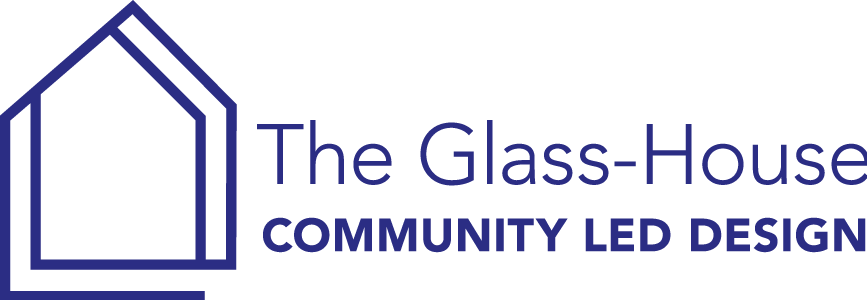Written by:
By Grace Crannis
Last week, the Glass-House was in Manchester for the penultimate event in our WE design 2019/20 event series, Reconfiguring Place: Housing, delivered in partnership with Urbed and The Manchester School of Architecture (MMU).
Housing has featured prominently in the news recently, from unsafe cladding post-Grenfell, the debate about space standards and social housing levels, to the widespread flooding that’s hit the UK in the past few months. Our aim with this evening was to think creatively about how we might acknowledge, but look beyond this narrative to suggest some productive proposals for enacting change.
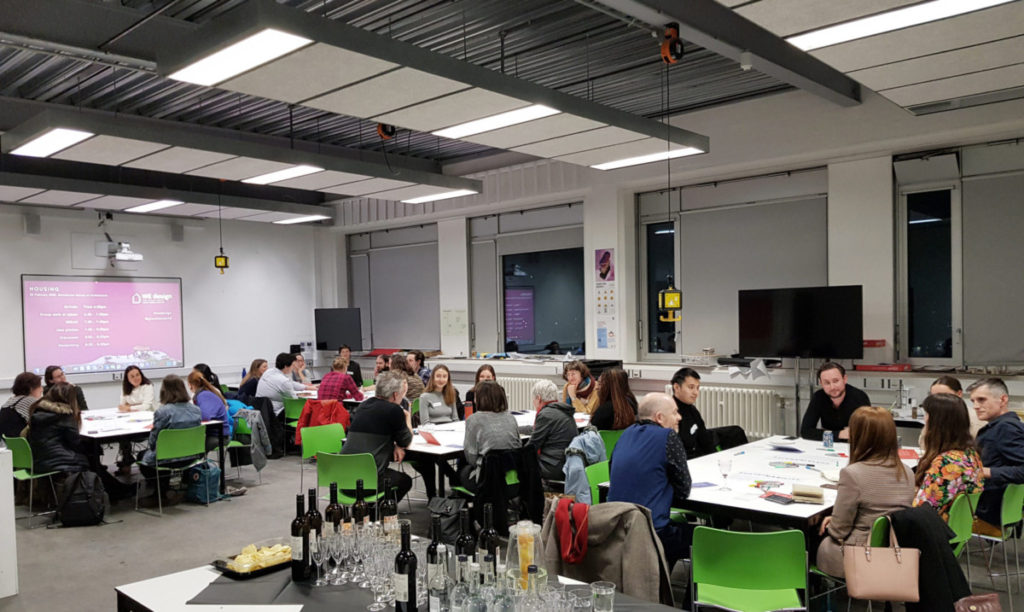
Hosted by the MMU, we took over the first year architecture studio for the evening, enjoying its fantastic views across the city and the numerous cranes in the distance.
As at previous events in this series, we used the themes of CONNECTION, DIVERSITY, POWER and SUSTAINABILITY as prompts for exploring how we can shape places differently through a more creative and collaborative approach to design and placemaking.
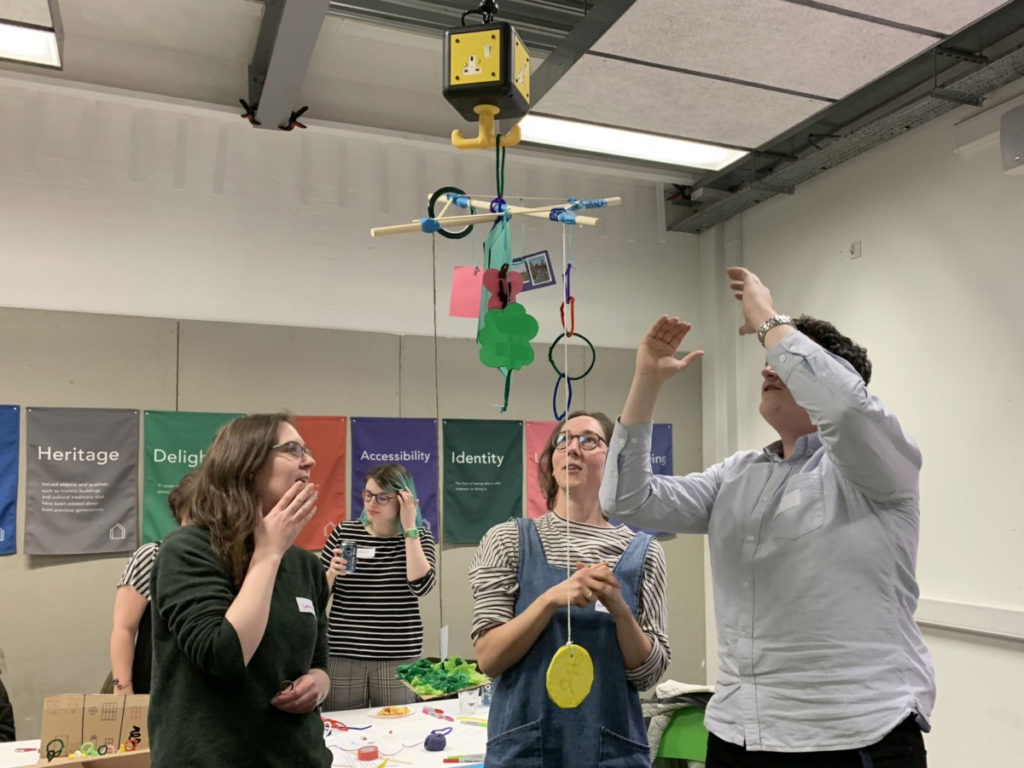

Activity and conversation was lively as our participants turned to the task at hand: working together to come up with a proposal or idea that is visually represented using the materials on offer. Here is what emerged as the evening unfolded:
Car free streets were the order of the day at the connection table. The key idea here was to decentralise the car from planning by moving parking away from residential areas, encouraging play streets and enabling people to talk to each other more.
At the diversity table, gender and intergenerational connection were high on the agenda. The proposal here was to occupy the ground floor of a tower block to encourage crossover between residents and the wider community, and to establish skill sharing and community activities.
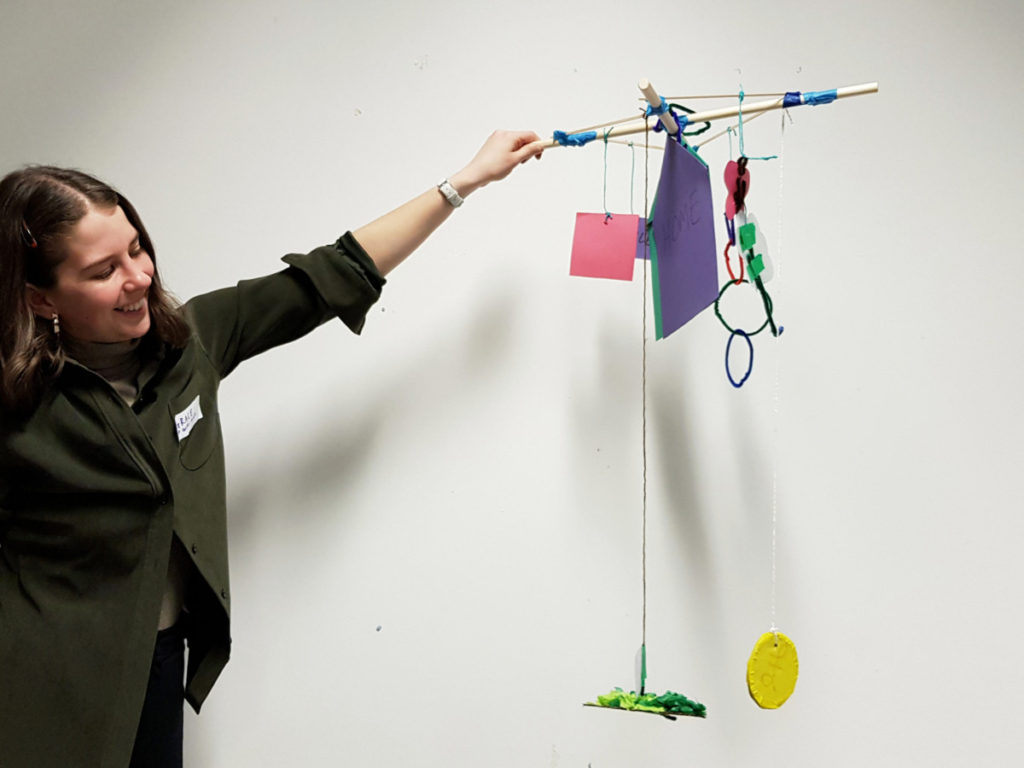
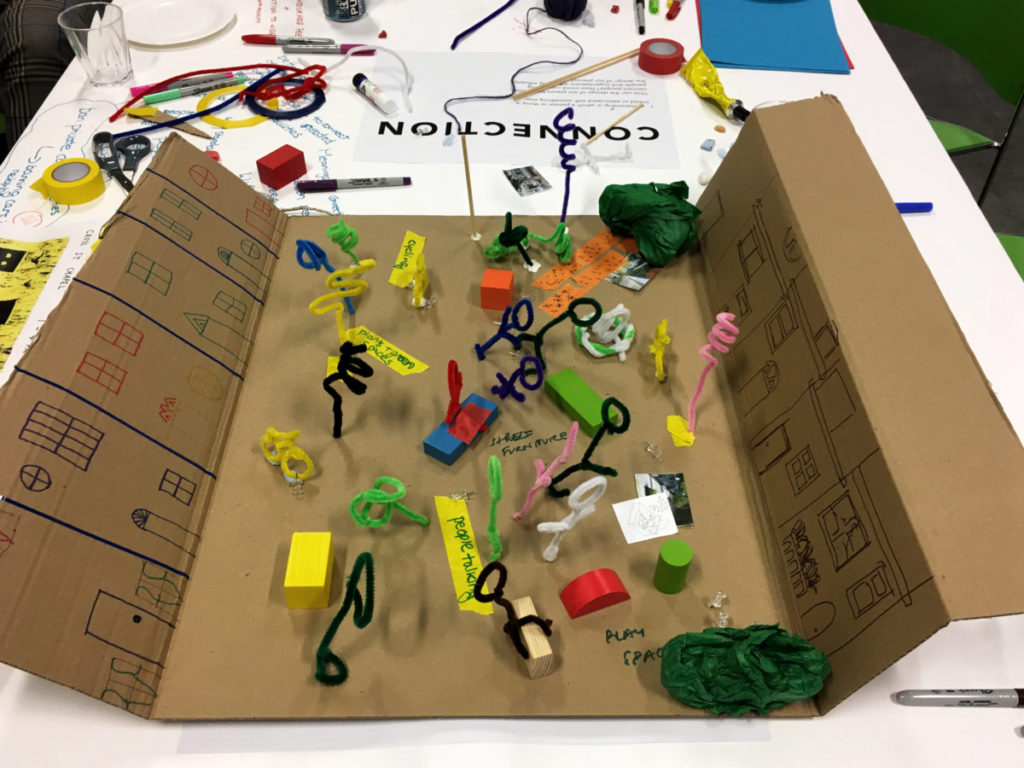
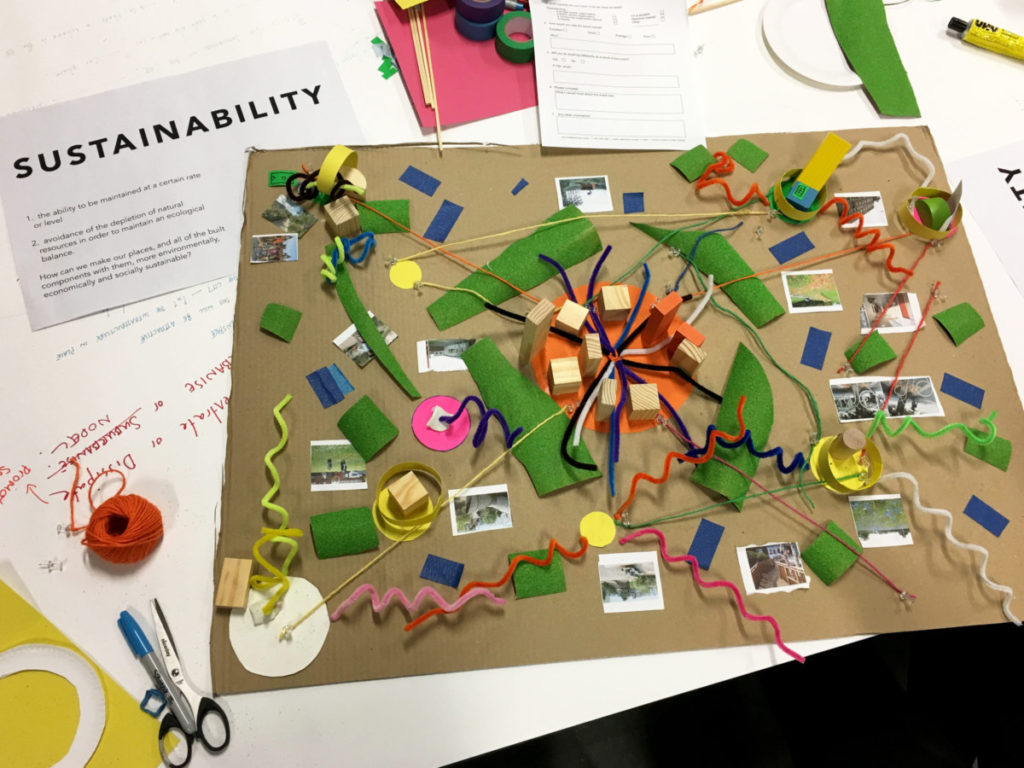
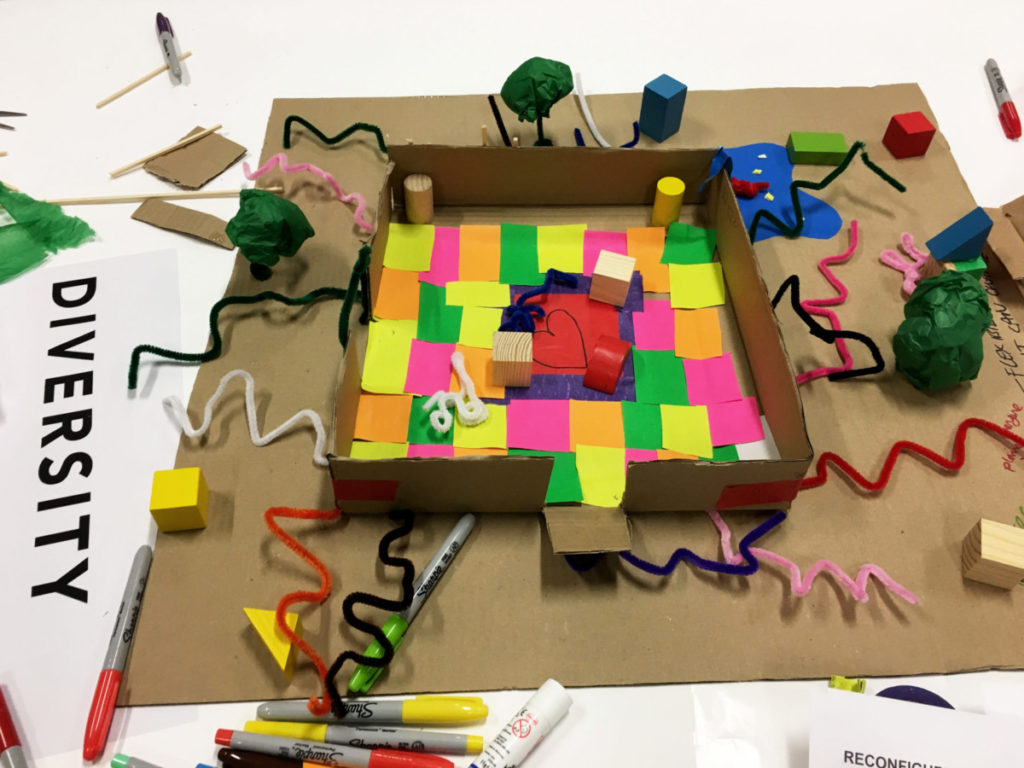
Conversation at the power table was quick to come to a consensus about those who had it, and those who did not, and recommendations for doing things differently were numerous. There was a sense that the balance of power needed to shift, and tools such as better information about land ownership would enable this. A lovely late addition, which summarised the ethos of a people-centred approach: ‘the power to belong to a place’.
The group working around sustainability proposed a holistic rethink of the way we design and implement infrastructure for new developments, with a systems-based approach and joined-up transport connections. Limited cars were also a central theme at this table, as well as connections to green space.
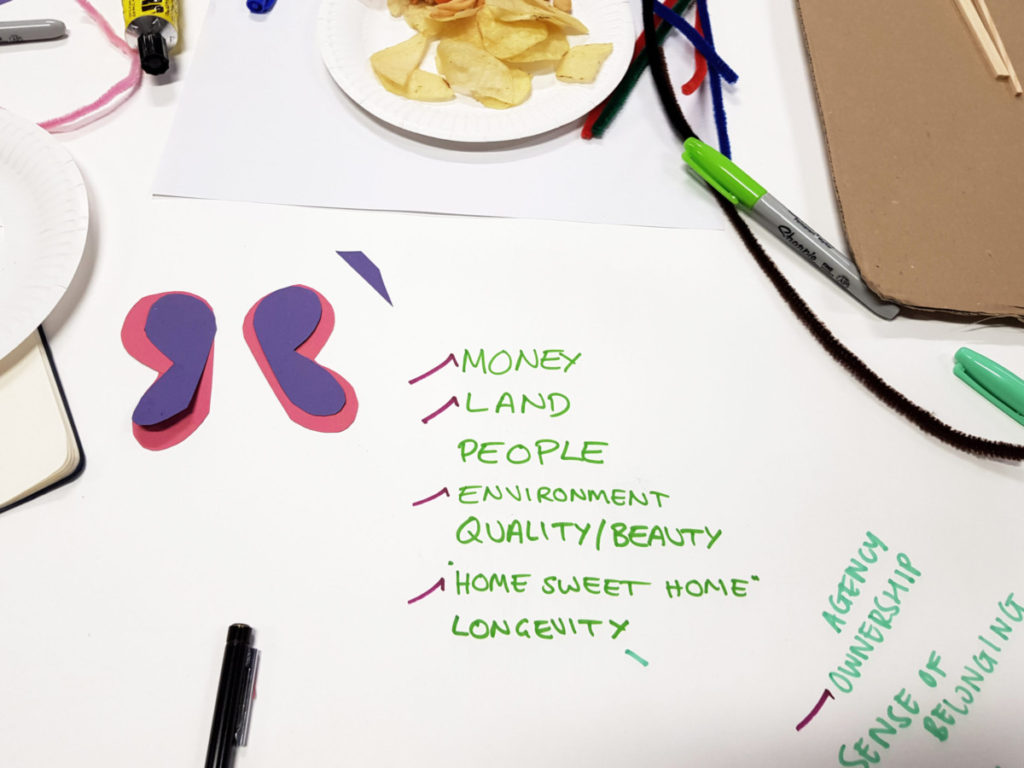
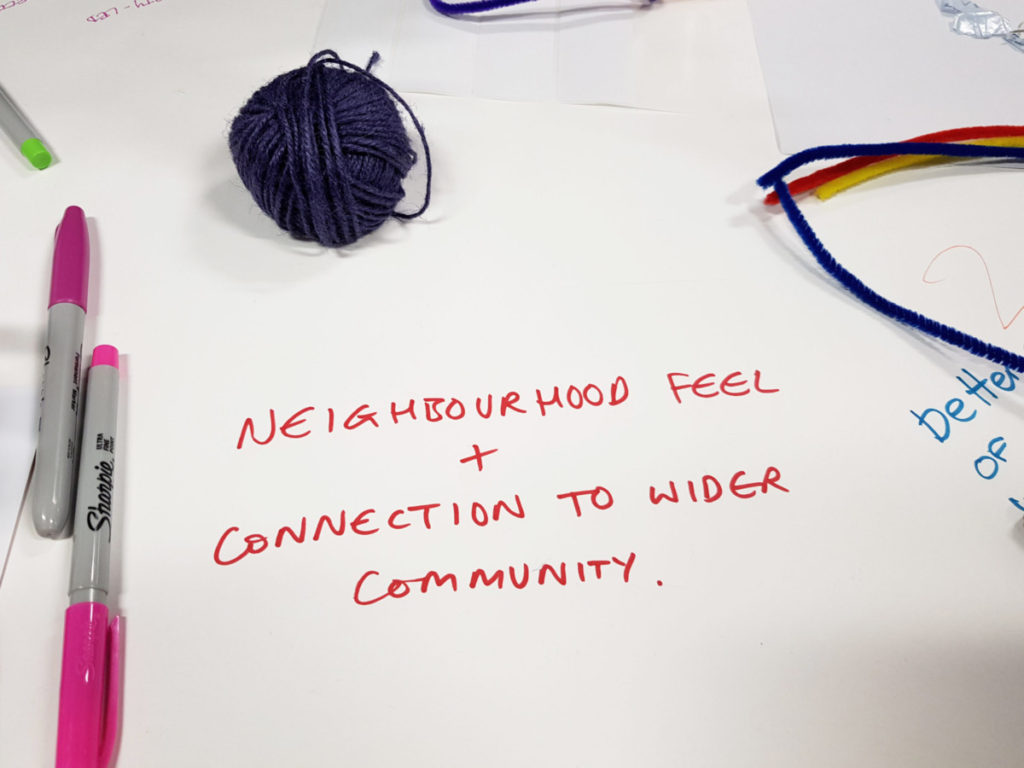
As the evening turned to a conversation with the room, it was interesting to note, given how prominent the topic is in housing discourse, that fire and water came up so late in the day. Building on floodplains is commonplace, and with the debate about who should take responsibility for inadequate fire protection still raging, this perhaps reflects the need for systemic change and collective responsibility. There was an important point raised about the need for fairness when limiting access to cars, and acknowledgement that some people have greater need to use one, especially in more rural areas, as well as the importance of moving away from blame culture and stereotyping in the industry.
Recommendations at this event came in thick and fast, with some clear proposals, and some debate, about an approach that would be fairer and more inclusive of those without typical access to influence in the system:
- A more integrated and consistent planning system, with shared values and priorities
It was felt that somehow the current system isn’t achieving this, and that the application of planning principles and standards varies radically from place to place. Some suggested a mandatory code of conduct for developers, planners and land owners, with no room for negotiation. - Reduce access to cars in cities
Encourage biking, walking and designing new developments which leave cars at the edge of housing. Offer free transport from housing to high street, especially in smaller towns and more rural areas. - Encourage and enable different approaches to development
We should break up the master developer model and encourage smaller initiatives. Build homes for all family models, not just single bed flats for young professionals. Make disability inclusion and the ‘cradle to grave’ model central to the design of housing and not an afterthought. Build better infrastructure before, and along with new homes - Disrupt the current power balance
Divorce capital benefits from the decision-making process. Power should be weighted in different ways, beyond access to capital and land ownership. Make land ownership visible in order to assess who owns what. At present, there is a knowledge gap in publicly accessible information due to historical legacies and private record keeping.
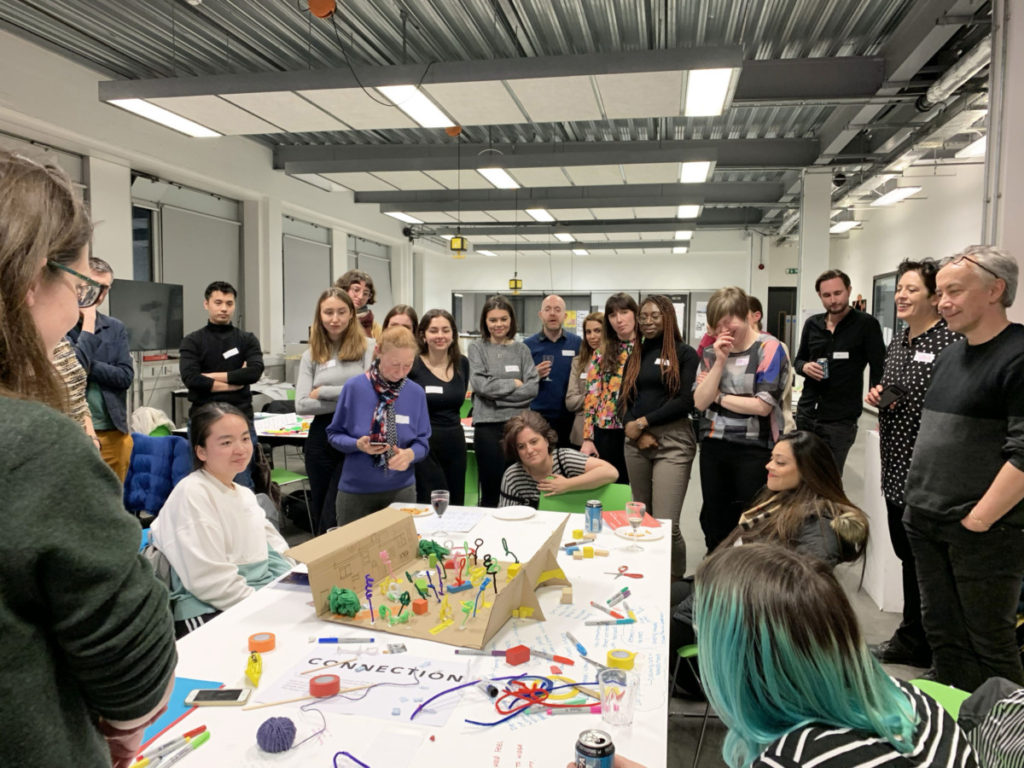
The breadth and scope of the ideas that arose during the evening was really striking. Our aim is that participants move forward with a greater sense of what they can achieve and we all talk more about how we can work together to affect change. It was great to see people lingering for one last drink, exchanging cards, and taking about what they could do together next!
With thanks to Urbed Manchester and Emily Crompton at the Manchester School of Architecture, Manchester Metropolitan University.
Grace Crannis is Outreach and Impact Manager at the Glass-House Community Led Design.
